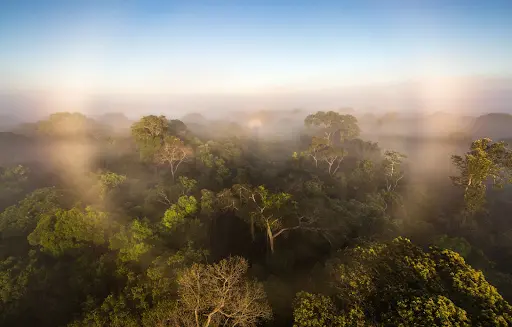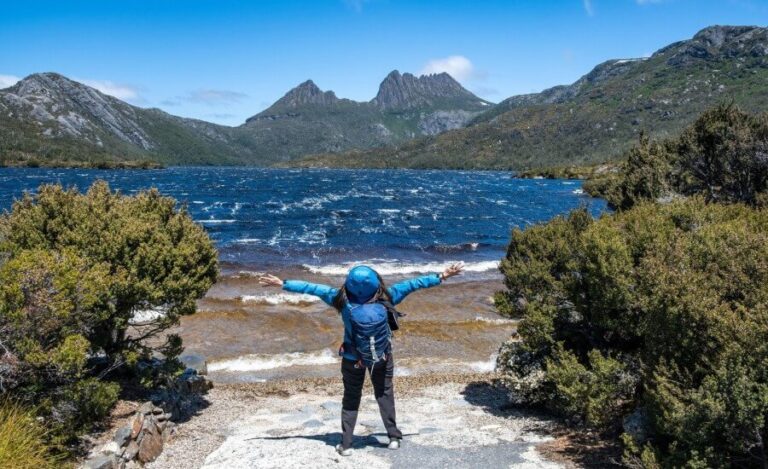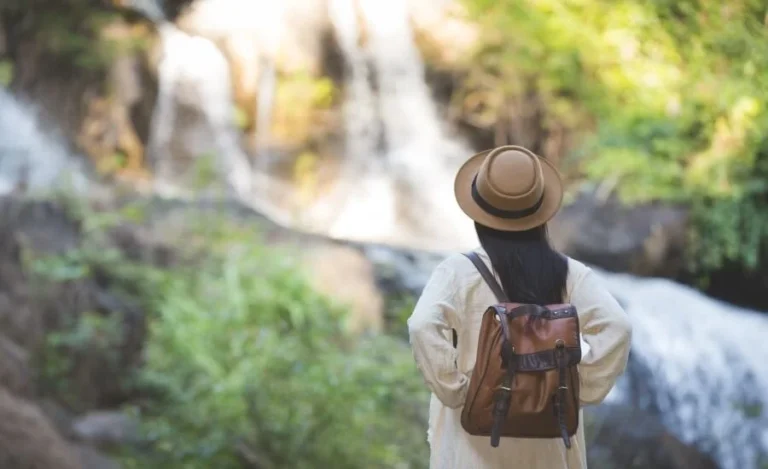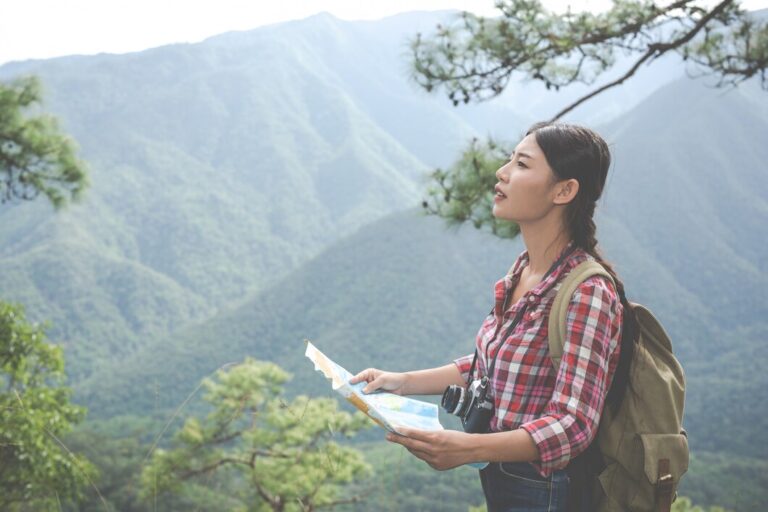
The Amazon Rainforest. Just the name evokes images of unparalleled biodiversity, vast, winding rivers, and ancient cultures living in harmony with nature. It’s the “lungs of our planet,” a place of immense ecological importance and profound mystery that calls to adventurous spirits, especially backpackers seeking authentic experiences off the beaten path. But this vital, awe-inspiring ecosystem is also incredibly fragile, facing threats from deforestation, resource extraction, and, potentially, irresponsible tourism. As budget-conscious backpackers, eager to explore this natural wonder, we hold a unique responsibility to ensure our presence supports rather than strains this precious environment and its communities.
This isn’t just about finding the cheapest jungle tour; it’s about making conscious choices that align with sustainability and respect. This guide is designed for the backpacker wanting to delve into the Amazon responsibly. We’ll explore A Sustainable Backpacker’s Guide to Exploring the Amazon Rainforest, focusing on how to minimize your footprint, support local communities ethically, embrace mindful presence amidst limited connectivity, and contribute positively to the conservation of this irreplaceable part of our world. Forest bathing offers deep healing and mindful escape
Lungs of the Planet, Fragile Paradise: Why Sustainable Backpacking is Crucial in the Amazon
The Amazon basin, spanning nine countries, holds the largest remaining tropical rainforest on Earth, harboring an estimated 10% of the world’s known species and playing a critical role in regulating global climate patterns. Its vast network of rivers discharges about 20% of the world’s freshwater into the Atlantic Ocean. It’s also home to hundreds of distinct Indigenous Peoples, many of whom possess deep ancestral knowledge crucial for conservation. However, this vibrant ecosystem is under immense pressure from deforestation for agriculture (especially cattle ranching and soy), logging, mining, oil extraction, and infrastructure development.
As travelers, even budget-conscious backpackers, our choices have an impact. Unsustainable tourism can contribute to environmental degradation through waste generation, resource depletion, habitat disturbance, and supporting operations that may indirectly fuel deforestation. Unethical practices can lead to the exploitation of wildlife and the commodification or disruption of local and Indigenous cultures. Therefore, sustainable backpacking in the Amazon isn’t just a ‘nice-to-have’; it’s an ethical imperative.
By choosing sustainable options, we can actively support conservation efforts, empower local communities economically, foster genuine cross-cultural understanding, and ensure the Amazon remains a source of wonder and life for generations to come. Our goal should be to explore with awe while protecting with purpose.
Choosing Your Gateway & Ethical Journey: Lodges, Tours, and Communities
For backpackers, finding affordable and ethical options requires careful research. Gateway cities like Iquitos (Peru), Leticia (Colombia), Manaus (Brazil), Rurrenabaque (Bolivia), or Tena (Ecuador) offer various starting points, each with different accessibility and tour styles.
Selecting Responsible Operators & Accommodation
- Research Diligently: Don’t just book the cheapest tour you find online or on the street. Look for operators with clear, demonstrable commitments to sustainability. Check their websites for environmental policies, community partnerships, and guide credentials. Read reviews specifically mentioning responsible practices.
- Look for Eco-Credentials (with caution): Certifications can be helpful, but greenwashing exists. Dig deeper – what do their practices actually involve (waste management, energy use, water conservation, local employment)?
- Prioritize Local & Community-Based: Whenever possible, choose eco luxury resorts & eco-lodges and tour operators owned and run by local communities, including Indigenous groups. This ensures benefits stay local and experiences are often more authentic. Examples like Pacaya Samiria Amazon Lodge or community initiatives mentioned in sources illustrate this model. While potentially slightly more expensive than bare-bones options, the value in ethical impact is significant. Budget options exist, but require thorough vetting.
- Ask Questions: Contact operators directly. Ask about group sizes (smaller is generally better), guide training (local guides are invaluable), wildlife viewing policies (no feeding/touching!), waste disposal practices, and how they support local communities. Their transparency (or lack thereof) is telling.
- Avoid Red Flags: Be wary of guaranteed close wildlife encounters (suggests baiting), lodges with captive ‘pet’ wild animals, tours that seem overly staged, or those lacking clear safety and environmental protocols.
Respectful Engagement with Local & Indigenous Communities
- Seek Permission & Consent: If your tour includes visits to local or Indigenous communities, ensure this is done with the community’s full, prior, and informed consent (FPIC). Understand that you are a guest. Always ask permission before taking photos of people or entering homes/private areas.
- Learn Basic Etiquette & Phrases: Research local customs. Learn basic greetings in Spanish/Portuguese and any relevant local dialect if possible. Politeness and respect go a long way.
- Support Fairly: Purchase authentic handicrafts directly from artisans if the opportunity arises respectfully, paying a fair price. Avoid giving handouts like sweets or money, which can foster dependency; support structured community initiatives instead.
- Listen & Learn: Approach interactions with humility. Be genuinely interested in learning about their way of life as they choose to share it, rather than imposing your own views or seeking ‘exotic’ experiences.
Packing Light, Packing Right: The Sustainable Backpacker’s Kit for the Jungle
Packing appropriately for the Amazon means prioritizing practicality, durability, and environmental friendliness, while keeping weight manageable for backpacking.
Essential Sustainable Gear:
- Reusable Water Bottle & Filter/Purifier: Absolutely crucial to avoid single-use plastic bottles. Bring a sturdy bottle and a reliable filter (e.g., Sawyer Squeeze, Lifestraw) or purification tablets.
- Biodegradable Toiletries: Use soaps, shampoos, and toothpaste that won’t harm sensitive waterways. Solid toiletries save space and plastic.
- Eco-Friendly Insect Repellent: Opt for repellents with natural ingredients (like picaridin or oil of lemon eucalyptus) where effective, or use DEET sparingly and responsibly. Avoid spraying near water sources. Long sleeves/trousers are the best defense.
- Reef-Safe Sunscreen (if swimming): If any swimming is involved, ensure sunscreen won’t damage aquatic life.
- Quick-Dry Clothing: Lightweight, breathable, quick-drying fabrics (synthetics or merino wool blends) are best for humidity and rain. Pack layers. Long sleeves and trousers offer sun and insect protection. Neutral colours are better for wildlife viewing.
- Durable Backpack & Dry Bags: Protect your gear from moisture. Dry bags are essential for electronics and important items.
- Headlamp/Flashlight & Extra Batteries: Essential for evenings and night walks. Rechargeable options preferred.
- Basic First-Aid Kit: Tailored for tropical environments (include antiseptic wipes, bandages, blister treatment, pain relievers, antihistamines, any personal meds).
Minimize Waste:
- Repackage Food: Remove excess packaging from snacks before you go.
- Bring Reusable Bags/Containers: For snacks, shopping, or carrying wet items.
- Pack Out Everything: Be prepared to carry all your trash, including organic waste like fruit peels in sensitive areas, back to a proper disposal facility in a larger town.
Pack Light: Remember, less is more. You’ll likely be carrying your pack between transport and lodges. Prioritize versatile, essential items.
Jungle Signals: Embracing Disconnection for Deeper Immersion
One of the realities – and arguably, one of the great benefits – of venturing into many parts of the Amazon is the limited or non-existent mobile phone signal and Wi-Fi. Rather than fighting this, embrace the opportunity to truly disconnect and immerse yourself in the incredible environment around you.
Prepare for Offline: Download any essential maps, documents, or books before you leave the gateway city. Inform family and friends you will likely be out of contact for periods. Set expectations for yourself and others.
Sensory Awakening: Without the constant distraction of a screen, your senses will naturally heighten. Pay attention to the incredible symphony of jungle sounds – birds, insects, monkeys, rain. Notice the complex smells of damp earth, decaying leaves, fragrant flowers. Observe the intricate patterns of light filtering through the canopy.
Let the jungle fill your awareness. Downtime Redefined: Use periods of downtime – during boat journeys, evenings at the lodge, waiting out rain showers – for analog activities. Read a physical book, write in your journal, sketch the flora or fauna (from observation or memory), talk with fellow travelers or guides, or simply sit quietly and observe.
Rediscover the richness of a slower pace. Mental Clarity: The absence of digital noise allows your mind to quiet down. Thoughts might wander, insights might arise, a sense of calm can settle in. This mental spaciousness is a rare gift in our hyper-connected world. Use the time for reflection on your experiences and your connection to this vital ecosystem.
Challenge: Try leaving your phone turned off and packed away for the majority of your jungle stay, using it only if absolutely necessary for safety or pre-arranged brief check-ins. See how your experience changes.
A Sustainable Backpacker’s Guide to Exploring the Amazon Rainforest: Mindful Practices
Exploring the Amazon sustainably and mindfully involves conscious choices during your activities.
Immersive Jungle Walks & River Exploration
- Go with Qualified Local Guides: Their knowledge of trails, wildlife, plant uses, and safety is invaluable. They can spot things you’d miss and interpret the environment, deepening your understanding and appreciation. Support operators who employ and train local guides fairly.
- Stay on Trails: Avoid straying from established paths to minimize disturbance to vegetation and soil, and for your own safety (getting lost is easy).
- Move Quietly & Slowly: Walk softly, avoid loud talking. This increases your chances of spotting wildlife (which often hears you before you see it) and shows respect for the environment and other visitors.
- Observe Mindfully: Engage all your senses. Look closely at insects, fungi, leaf patterns. Listen intently to the layers of sound. Feel the humidity, touch rough bark or smooth leaves (ask guide if unsure about touching plants).
- River Travel Awareness: On boat trips (especially smaller canoes), be mindful of balance, keep noise down, and avoid sudden movements that could disturb wildlife along the banks. Appreciate the different perspective from the water.
Ethical Wildlife Encounters
- Observe from a Distance: Use binoculars or camera zoom (used mindfully) instead of trying to get physically close. Respect animals’ space and natural behaviour.
- No Feeding, Touching, or Chasing: Never feed wild animals – it disrupts their diet, behaviour, and can make them dependent or aggressive. Do not touch or attempt to handle wildlife. Never chase animals for a better view or photo.
- Be Patient & Quiet: Wildlife sightings often require patience. Find a comfortable spot (if appropriate) and wait quietly. Let the animals come to you, or appreciate their presence from afar.
- Night Walks: Use red light filters on headlamps if possible to minimize disturbance to nocturnal creatures’ vision. Follow your guide’s instructions closely.
- Avoid Supporting Unethical Practices: Steer clear of lodges with captive ‘pet’ monkeys or birds, or tours guaranteeing close encounters through baiting. Report any unethical practices you witness to relevant authorities or conservation groups.
Leave More Than Footprints: Minimizing Impact & Contributing Positively
Sustainable travel goes beyond simply minimizing harm; it aims to leave a place better, or at least support efforts that do.
Adhere Strictly to Leave No Trace: This is non-negotiable in the Amazon. Pack out everything. Dispose of human waste properly (deep catholes far from water, or using lodge facilities). Minimize campfire impact (use stoves primarily). Leave natural and cultural objects untouched.
Conserve Resources: Be mindful of water and electricity usage at lodges, which are often off-grid and rely on limited resources like rainwater or generators.
Support Conservation Directly (Optional): Research reputable conservation organizations working in the specific Amazon region you visit. Consider making a donation or supporting initiatives focused on reforestation, wildlife protection, or sustainable livelihoods for local communities.
Buy Local, Sustainable Crafts: If purchasing souvenirs, choose items handmade by local artisans, ensuring the money directly benefits them. Avoid products made from endangered species (certain woods, feathers, animal parts).
Share Responsibly: When sharing your experiences back home (verbally or online), emphasize the importance of sustainability, respect for culture and wildlife, and the fragility of the ecosystem. Promote ethical operators. Avoid perpetuating stereotypes or showcasing risky/disrespectful behaviour.
Common Concerns & Solutions for the Sustainable Amazon Backpacker
Navigating the Amazon sustainably on a budget presents unique challenges.
Concern 1: Ethical/Sustainable tours seem much more expensive than basic options.
- Solution: While sometimes true (reflecting fair wages, smaller groups, conservation contributions), research diligently. Budget-friendly and ethical options exist. Consider it an investment – paying slightly more for a responsible operator ensures your money supports positive impacts, not potential harm. Shorter, more immersive trips with ethical providers might be better value than longer, cheaper, potentially exploitative ones. Compare inclusions carefully.
Concern 2: How do I really know if an operator is ethical, especially booking locally on a budget?
- Solution: It’s challenging. Ask detailed questions (see ‘Choosing Operators’ section). Look for specific examples of community partnerships or environmental practices. Trust your gut feeling after talking to them. Look for reviews mentioning guides’ knowledge and respect for wildlife/rules. Sometimes joining forces with other conscious backpackers to book a slightly better tour can work. Be prepared to walk away if something feels wrong.
Concern 3: Isn’t the Amazon dangerous for backpackers (wildlife, diseases, getting lost)?
- Solution: Risks exist, but are manageable with preparation and common sense. Go with reputable guides, especially for jungle treks. Get recommended vaccinations (Yellow Fever is often required) and take malaria precautions if advised for your specific area. Use insect repellent diligently. Be aware of your surroundings, watch where you step, don’t swim in unknown waters without guide approval. Stay hydrated. Basic navigation awareness helps even with a guide.
Concern 4: My individual impact feels tiny compared to large-scale deforestation.
- Solution: Your choices model behaviour and direct tourist dollars. Supporting sustainable operators strengthens the economic argument for conservation over destructive industries. Your voice sharing responsible practices matters. Collective individual action creates significant change. Focus on making your impact positive.
Before You Go Checklist: Sustainable Amazon Backpacking
Prepare for a conscious journey into the heart of the rainforest:
- Research & Choose Ethically: Select gateway city, research/book responsible tour operator/lodge, understand their sustainability & community practices.
- Health Prep: Consult travel clinic for required/recommended vaccinations (Yellow Fever, Typhoid, Hepatitis A, etc.) & malaria prophylaxis advice specific to your region/season. Pack personal medications & tailored first-aid kit.
- Visas & Documents: Check entry requirements. Have passport copies, insurance details (ensure it covers remote evacuation if needed), printed booking confirmations.
- Sustainable Packing: Use checklist above – focus on reusables, biodegradable toiletries, appropriate clothing, dry bags, headlamp, water filter/purifier. Pack light!
- Learn Basic Language/Etiquette: Master essential Spanish/Portuguese phrases & research general Amazonian/local cultural etiquette.
- Offline Resources: Download offline maps (as backup), relevant apps before losing signal. Pack physical field guide(s), journal, book.
- Finances: Bring sufficient cash (USD often useful alongside local currency in some areas) for tips, crafts, emergencies, as ATMs are scarce outside gateway cities. Inform your bank of travel plans.
- Safety Contacts: Leave detailed itinerary with someone at home. Note down emergency contacts (local embassy, insurance). Consider packing a PLB/satellite messenger for deep remote travel for emergencies only.
- Leave No Trace Review: Refresh your knowledge of LNT principles, especially for jungle environments.
- Mindset: Cultivate humility, patience, curiosity, respect, and readiness to disconnect and embrace the unexpected.
Explore with Awe, Protect with Purpose
The Amazon Rainforest is not just a destination; it’s a vital life force for our planet and a repository of immense biological and cultural diversity. To explore it as a backpacker is a privilege that comes with profound responsibility. By choosing sustainability, embracing mindful presence, and prioritizing respect for both nature and local communities, we can transform our journey from a simple trip into a meaningful act of stewardship. Sustainable backpacking in the Amazon proves that adventure and ethics can, and must, go hand-in-hand.
You are now equipped with the knowledge and principles to navigate this incredible ecosystem consciously. You understand the importance of ethical choices, the power of mindful observation, the necessity of minimizing your footprint, and the joy found in genuine, unplugged connection. Let the symphony of the jungle awaken your senses, let the vastness of the river broaden your perspective, and let the resilience of nature and culture inspire you.
Go forth with an open heart and a light footprint. Choose wisely, tread gently, listen deeply, and allow the magic of the Amazon to touch you. By exploring with awe and protecting with purpose, you become part of the solution, ensuring this irreplaceable treasure continues to thrive for generations to come.






